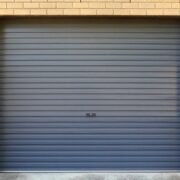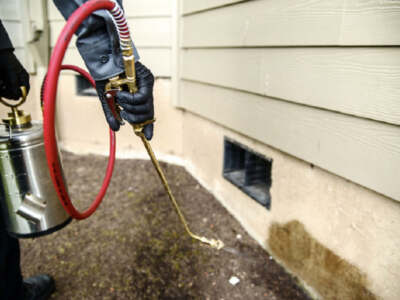Are you looking for ways to make your home more energy-efficient? Insulating your house is a great place to start, but simply adding insulation isn’t enough – an essential factor in ensuring the efficiency of home insulation is air sealing.
If you aren’t familiar with it already, air sealing plays a significant role in boosting the effectiveness of insulation and improving overall comfort within the home. In this air sealing guide, we dive deeper into understanding how air sealing works and its importance in making your home more comfortable and energy-efficient. Read on to learn more.
Why Is Home Insulation So Important?
Before we delve into the specifics of air sealing, let’s take a moment to understand why home insulation is so crucial. Insulation acts as a barrier between your home and the outside elements – be it cold winter or hot summer temperatures. It helps maintain consistent indoor temperatures, reducing the need for heating and cooling systems and keeping energy costs down.
Insufficient or poorly installed insulation can lead to significant energy loss, resulting in higher utility bills and reduced comfort levels. In fact, according to the U.S. Department of Energy, heating and cooling account for nearly 50% of a home’s total energy costs, making proper insulation and air sealing critical components in reducing energy consumption.
Benefits of proper home insulation include:
- Lower energy bills
- Improved comfort levels
- Enhanced indoor air quality
- Reduced carbon footprint
Understanding Air Sealing
Now that we’ve established the importance of home insulation, let’s look at how air sealing can help boost its effectiveness. Essentially, air sealing refers to finding and sealing any gaps or leaks in your home’s exterior, which allows air to escape or enter. These leaks can occur anywhere – from windows and doors to electrical outlets and plumbing pipes.
Effective air sealing reduces the amount of air that passes through these tiny gaps and cracks, making your home more airtight. This helps maintain consistent indoor temperatures, prevents drafts, and keeps out unwanted pollutants such as dust and allergens. Proper air sealing can also help prevent moisture from entering your home, protecting against mold and mildew growth. Let’s go over the most important benefits of air sealing.
Boosts Insulation Effectiveness
Air sealing and insulation go hand in hand, working together to keep your home comfortable and energy-efficient. Insulation can become less effective without proper air sealing as air moves through gaps or leaks, reducing its ability to trap heat in winter or block it out in summer.
By sealing these gaps, air sealing helps maintain the integrity of your insulation, ensuring that it functions at its maximum potential. This, in turn, can lead to lower energy bills and improved comfort levels within your home.
Improves Indoor Air Quality
Unwanted outdoor pollutants like dust, pollen, and allergens can enter your home through air leaks. These contaminants trigger allergies and contribute to poor indoor air quality. Proper air sealing helps keep these pollutants out, making your home’s air cleaner and healthier.
Reduces Moisture Issues
Moisture can enter your home through cracks or gaps in the exterior, leading to mold and mildew growth. This not only damages your property but also poses a health risk for you and your family. Air sealing helps prevent moisture from entering, keeping your home dry and mold-free.
Allows for Consistent Temperatures
Air leaks can lead to hot or cold spots within your home, making it difficult to maintain consistent temperatures. By sealing these gaps and cracks, air sealing helps keep the temperature even throughout your home, enhancing overall comfort levels. Moreover, this also reduces the workload on your heating and cooling systems, leading to lower energy bills.
How to Know if Your Home Needs Air Sealing
Not sure if your home requires air sealing? Here are a few telltale signs to look for:
- Uneven temperatures throughout the house
- High energy bills
- Drafts or air leakage around windows and doors
- Difficulty in maintaining comfortable indoor temperatures
If you notice any of these signs, your home could likely benefit from air sealing. If you’d like to learn more about the air-sealing process, your best bet is to contact an insulation expert.
FAQ
How effective is air sealing?
Air sealing can be highly effective in improving the efficiency of your home’s insulation, reducing energy costs, and enhancing comfort levels. However, its effectiveness may vary depending on factors such as the size and location of air leaks, the quality of existing insulation, and the skill of the contractor performing the work.
Can I do air sealing myself?
While small gaps or leaks can easily be sealed by homeowners using caulk or weather-stripping, larger and more complex air sealing jobs are best left to professionals. Insulation experts have the tools and expertise to identify and seal hidden leaks.
How much does air sealing cost?
The cost of air sealing varies depending on factors such as the size of your home, the extent of air leakage, the type of insulation, and the contractor’s rates. However, the benefits of air sealing in terms of energy savings and improved comfort often outweigh the initial cost.
Conclusion
Air sealing is crucial in improving home insulation, reducing energy costs, and enhancing overall comfort levels. By understanding how it works and its many benefits, you can take proactive steps to make your home more efficient and comfortable. Whether you’re looking to save money on energy bills or simply want a more comfortable living space, air sealing is an essential aspect of home insulation that should not be overlooked. Contact an insulation expert today to learn how air sealing can benefit your home.














Comments